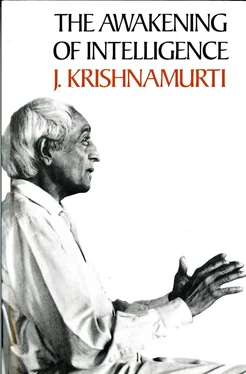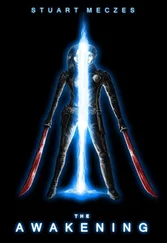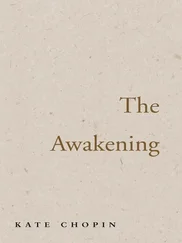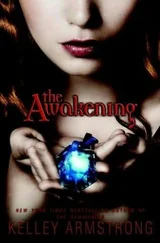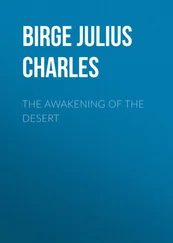J. Krishnamurti - The Awakening of Intelligence
Здесь есть возможность читать онлайн «J. Krishnamurti - The Awakening of Intelligence» — ознакомительный отрывок электронной книги совершенно бесплатно, а после прочтения отрывка купить полную версию. В некоторых случаях можно слушать аудио, скачать через торрент в формате fb2 и присутствует краткое содержание. Жанр: unrecognised, на английском языке. Описание произведения, (предисловие) а так же отзывы посетителей доступны на портале библиотеки ЛибКат.
- Название:The Awakening of Intelligence
- Автор:
- Жанр:
- Год:неизвестен
- ISBN:нет данных
- Рейтинг книги:5 / 5. Голосов: 1
-
Избранное:Добавить в избранное
- Отзывы:
-
Ваша оценка:
- 100
- 1
- 2
- 3
- 4
- 5
The Awakening of Intelligence: краткое содержание, описание и аннотация
Предлагаем к чтению аннотацию, описание, краткое содержание или предисловие (зависит от того, что написал сам автор книги «The Awakening of Intelligence»). Если вы не нашли необходимую информацию о книге — напишите в комментариях, мы постараемся отыскать её.
The Awakening of Intelligence — читать онлайн ознакомительный отрывок
Ниже представлен текст книги, разбитый по страницам. Система сохранения места последней прочитанной страницы, позволяет с удобством читать онлайн бесплатно книгу «The Awakening of Intelligence», без необходимости каждый раз заново искать на чём Вы остановились. Поставьте закладку, и сможете в любой момент перейти на страницу, на которой закончили чтение.
Интервал:
Закладка:
Is the meaning of death to be found through the process of thought? Please do share this. When we share it, then we will begin to see the beauty of all this, but if you sit there and let the speaker go on, merely listening to his words, then we don’t share together. Sharing together implies a certain quality of care, attention, affection, love. Death is a tremendous problem. The young people may say: why do you bother about it? But it is part of their life, as it is part of their life to understand celibacy. Don’t just say, “Why do you talk about celibacy, that’s for the old fogeys, that’s for the stupid monks.” What it means to be celibate has also been a problem for human beings, that also is part of life.
Can the mind be completely chaste? Not being able to find out how to live a chaste life, one takes vows of celibacy and goes through tortures. That is not celibacy. Celibacy is something entirely different. It is to have a mind that is free from all images, from all knowledge; which means understanding the whole process of pleasure and fear.
Similarly, one has to understand this thing called death. How do you proceed to understand something of which you are terribly frightened? Aren’t we frightened of death? Or we say, “Thank God I’m going to die, I’ve had enough of this life with all the misery of it, the confusion, the shoddiness, the brutality, the mechanical things by which one is caught, thank God all this will end!” That is not an answer; nor is it to rationalise death, or to believe in some reincarnation, as the whole Asiatic world does. To find out what reincarnation means, which is to be born in a future existence, you must find out what you are now. If you believe in reincarnation, what are you now?—a lot of words, a lot of experience, of knowledge; you are conditioned by various cultures, you are all the identifications of your life, your furniture, your house, your bank account, your experiences of pleasure and pain. That’s what you are, aren’t you? The remembrance of the failures, the hopes, the despairs, all that you are now, and that is going to be born in the next life—a lovely idea, isn’t it!
Or you think there is a permanent soul, a permanent entity. Is there anything permanent in you? The moment you say there is a permanent soul, a permanent entity, that entity is the result of your thinking, or the result of your hopes, because there is so much insecurity, everything is transient, in a flux, in a movement. So when you say there is something permanent, that permanency is the result of your thinking. And thought is of the past, thought is never free—it can invent anything it likes!
So if you believe in a future birth, then you must know that the future is conditioned by the way you live now, what you do now, what you think, what your acts are, your ethics. So what you are now, what you do now, matters tremendously. But those people who believe in a future birth don’t give a pin about what happens now, it’s just a matter of belief.
So, how do you find out what death means, when you are living with vitality, with energy, full of health? Not when you are unbalanced, or ill, not at the last moment, but now, knowing the organism must inevitably wear out, like every machinery. Unfortunately we use our machinery so disrespectfully, don’t we? Knowing the physical organism comes to an end, have you ever thought about what it means to die? You can’t think about it. Have you ever experimented to find out what it means to die psychologically, inwardly?—not how to find immortality, because eternity, that which is timeless, is now , not in some distant future. To enquire into that, one must understand the whole problem of time; not only chronological time, by the watch, but the time that thought has invented as a gradual process of change.
How does one find out about this strange thing that we all have to meet one day or another? Can you die psychologically today, die to everything that you have known? For instance: to die to your pleasure, to your attachment, your dependence, to end it without arguing, without rationalising, without trying to find ways and means of avoiding it. Do you know what it means to die, not physically, but psychologically, inwardly? Which means to put an end to that which has continuity; to put an end to your ambition, because that’s what’s going to happen when you die, isn’t it? You can’t carry it over and sit next to God! ( Laughter ) When you actually die, you have to end so many things without any argument. You can’t say to death, “Let me finish my job, let me finish my book, all the things I have not done, let me heal the hurts which I have given others”—you have no time.
So can you find out how to live a life now, today, in which there is always an ending to everything that you began? Not in your office of course, but inwardly to end all the knowledge that you have gathered—knowledge being your experiences, your memories, your hurts, the comparative way of living, comparing yourself always with somebody else. To end all that every day, so that the next day your mind is fresh and young. Such a mind can never be hurt, and that is innocence.
One has to find out for oneself what it means to die; then there is no fear, therefore every day is a new day—and I really mean this, one can do this—so that your mind and your eyes see life as something totally new. That is eternity. That is the quality of the mind that has come upon this timeless state, because it has known what it means to die every day to everything it has collected during the day. Surely, in that there is love. Love is something totally new every day, but pleasure is not, pleasure has continuity. Love is always new and therefore it is its own eternity.
Do you want to ask any questions?
Questioner: Supposing, Sir, that through complete, objective, self-observation I find that I am greedy, sensual, selfish and all that. Then how can I know whether this kind of living is good or bad, unless I have already some preconceptions of the good? If I have these preconceptions, they can only derive from self-observation .
KRISHNAMURTI: Quite, Sir.
Questioner: I also find another difficulty. You seem to believe in sharing, but at the same time you say that two lovers, or husband and wife, cannot base their love, shouldn’t base their love, on comforting each other. I don’t see anything wrong in comforting each other—that is sharing .
KRISHNAMURTI: The gentleman says, “One must have a concept of the good, otherwise, why should one give up all this ambition, greed, envy and all the rest of it?” You can have a formula or a concept of what is better, but can you have a concept of what is good?
Questioner: Yes, I think so .
KRISHNAMURTI: Can thought produce what is good?
Questioner: No, I meant the conception of such good .
KRISHNAMURTI: Yes, Sir. The conception of good is the product of thought; otherwise how can you conceive what is good?
Questioner: The conceptions can only be derived from our self-observation .
KRISHNAMURTI: I’m just pointing that out, Sir. Why should you have a concept of the good at all?
Questioner: Otherwise how do I know whether my life is good or bad?
KRISHNAMURTI: Just listen to the question. Don’t we know what conflict is? Do I have to have a concept of non-conflict before I am aware of conflict? I know what conflict is—the struggle, the pain. Don’t I know that, without knowing a state when there is no conflict? When I formulate what is good, I will formulate it according to my conditioning, according to my way of thinking, feeling, my particular idiosyncrasy and all the rest of my cultural conditioning. Is the good to be projected by thought?—and will thought then tell me what is good and bad in my life? Or has goodness nothing whatsoever to do with thought, or with a formula? Where does goodness flower?—do tell me. In a concept? In some idea, in some ideal that lies in the future? A concept means a future, a tomorrow. It may be very far away, or very close, but it is still in time. And when you have a concept, projected by thought—thought being the response of memory, the response of accumulated knowledge depending on the culture in which you have lived—do you find that goodness in the future, created by thought? Or do you find it when you begin to understand conflict, pain and sorrow?
Читать дальшеИнтервал:
Закладка:
Похожие книги на «The Awakening of Intelligence»
Представляем Вашему вниманию похожие книги на «The Awakening of Intelligence» списком для выбора. Мы отобрали схожую по названию и смыслу литературу в надежде предоставить читателям больше вариантов отыскать новые, интересные, ещё непрочитанные произведения.
Обсуждение, отзывы о книге «The Awakening of Intelligence» и просто собственные мнения читателей. Оставьте ваши комментарии, напишите, что Вы думаете о произведении, его смысле или главных героях. Укажите что конкретно понравилось, а что нет, и почему Вы так считаете.
